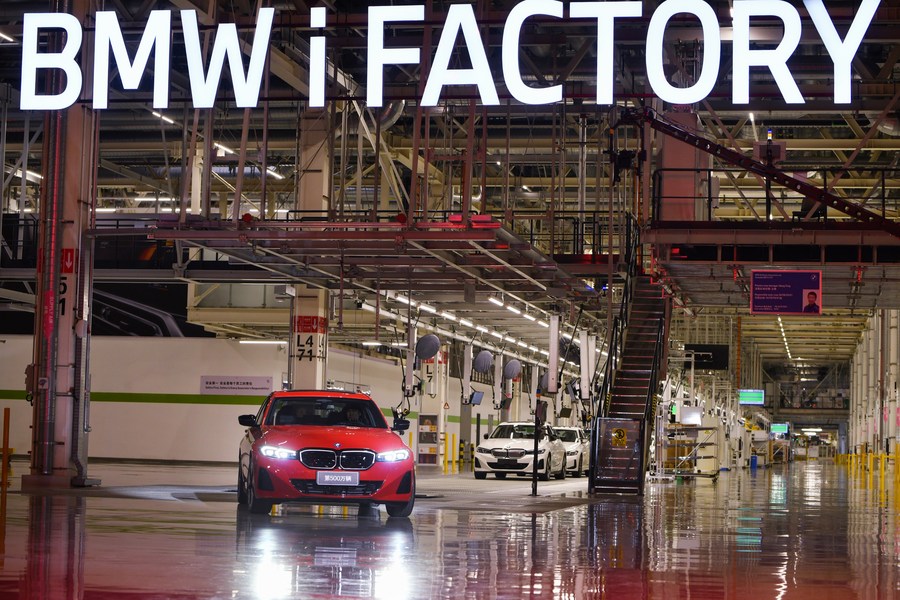BMW enters more Chinese families
Xinhua | Updated: 2023-05-25 12:07

SHENYANG -- Liu Yifang, a resident in Shenyang, Northeast China's Liaoning province, replaced his compact car with a BMW sedan in 2012, as he believed that the German brand had become affordable for more Chinese families.
The employee of a foreign-funded company with a family income of more than 300,000 yuan ($42,718) a year is considered as a member of China's fast growing middle-income consumers.
Previously deemed as luxuries, brands such as BMW and Tesla have gained popularity among Chinese consumers, as they match the consumers' needs for consumption upgrading.
BMW has witnessed China's journey of becoming the world's most active automobile producer and market. Its primary customer group has shifted from company buyers to ordinary Chinese families.
Twenty years ago, when the company first set foot in China, the country's automobile industry had just started to build momentum with production and sales exceeding 4 million vehicles for the first time.
At that time, BMW adopted a light asset investment strategy of renting production lines with China's Brilliance Auto Group. Now in China, BMW Group has built its largest production base in the world and established its largest R&D and innovation network outside Germany.
"Over the 20 years, we have developed to a significant site here in Shenyang, the largest production site worldwide," Milan Nedeljkovic, member of the board of management of BMW AG, told Xinhua in an interview upon the BMW Group's celebration of the 20th anniversary of its joint venture in China, BMW Brilliance Automotive Ltd (BBA), on May 18.
He said last year, BBA had two significant extensions of Dadong and Tiexi production sites in Shenyang, and based on them, the company is expanding the electro-mobility fleet coming from the iX3, which is locally produced for the international market.
As of February this year, BBA has rolled off 5 million vehicles.
An Liang, section leader in BBA's Plant Dadong, recalled that when he started to work in the plant in 2003, there were few robots in the factory. "Now robots exist in almost every production link in the plant."
In 2022, BMW delivered 41,886 pure electric vehicles in the Chinese market, up 91.6 percent year on year.
Jochen Goller, president and CEO of BMW China, said this year, BMW will go all out to go electric, presenting 11 pure electric products for Chinese customers.
As the world's largest new-energy vehicle production and sales market, China's development in the sector has opened up new growth space for foreign auto companies.
The US carmaker Tesla announced in April the construction of a new mega factory in Shanghai, which will be dedicated to manufacturing the company's energy-storage product Megapack. The new plant is scheduled to break ground in the third quarter of this year and start production in the second quarter of 2024.
Established in 2019, the Tesla Gigafactory in Shanghai is the carmaker's first Gigafactory outside the United States. It delivered 710,000 vehicles in 2022, an increase of 48 percent from 2021.
The vehicle export terminal of the port of Dalian, Liaoning, provides logistics services for BMW, Volvo, FAW and other car exporters. "Since the beginning of this year, we have been busy delivering cars every day," said a worker at the terminal.
"The Chinese market is very strong. It's dynamic and resilient. There is a significant opportunity for investments of foreign companies, which gives the win-win situation for both China and the investors," said Nedeljkovic in the interview.
























